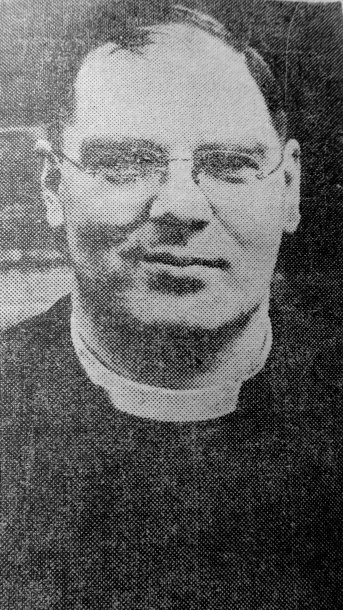Mexborough and Swinton Times, April 11th 1942
Rev H. W. Quarrell.

A large congregation gathered at Swinton Parish Church on Tuesday, when the new Vicar, the Rev. Herbert William Quarrell, B.A.. was instituted by the Bishop of Sheffield (Dr. L. S. Hunter). The parish has been without a Vicar since January, when the Rev. T. G. Rogers left Swinton to become Rector of Tankersley.
The Bishop was accompanied by the Archdeacon of Doncaster (Ven. R. W. Stannard), who performed the induction, and other clergymen present included Canon J. St. Leger Blakeney. Rector of Wombwell and Rural Dean of Wath; the Rev. W. G. Laurence, curate-in-charge of St. George’s Church. Mexborough, and Pastor E. J. Cole, of St. John’s Methodist Church. Swinton. The service was conducted by the Rev. K. F. Kinns and the Rev. E. H. Bungay acted as Bishop’s chaplain.
“In these dark days,” the Bishop said, “you and I have to hang on to the little bits of the experience of God in our lives with both hands, as we would a life-line. That is the only way to foster Christian hope.” He said that in this world evil acted as a poison or a disease which spread from organ to organ. In the same way the evil spread in our lives, and could only be arrested by an immune member of the community who was a non-conductor of the evil. The Bishop said: “In this hour of darkness, when the forces of evil seem so strong in the world, we should take courage and realise that the kingdom and rule of God is not a dream.”
“That thought I would particularly impress on you to-day,” the Bishop added, “as you gather together here to welcome your new incumbent. The parishioners of Swinton should have a true conception of the calling of Christ and I firmly believe that if you co-operate with your new Vicar, he bringing to you all the wide experience he has gathered, you may well be a rallying point for the forces of goodness and truth.”
The Bishop said it was the beginning of a new chapter in the life of the parish of Swinton. The decline in the sense of moral obligation was due to our weakening of faith in the resurrection of life, and if only we could believe the church would prove a powerful part in the life of the town.